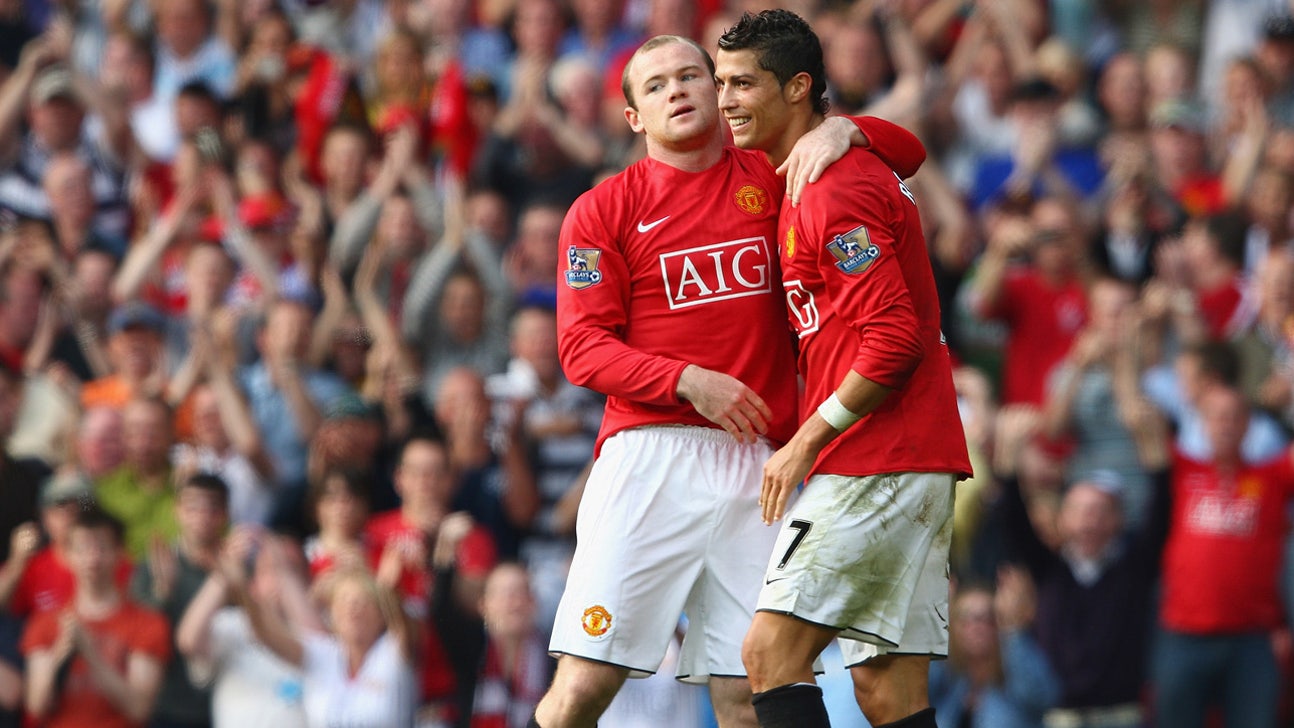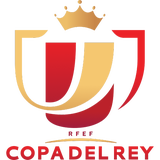
The big hypothetical for Manchester United, Rooney: What if Ronaldo had stayed?
The start to 2017 was one to remember for both Cristiano Ronaldo and Wayne Rooney. Ronaldo was named “The Best” men’s player by FIFA, to go along with his fourth Ballon D’Or. Rooney scored his 249th goal for Manchester United to tie Sir Bobby Charlton’s club record.
For Ronaldo, who remains one of the two best players in the world, it’s another sparkling moment in a 12-month span that’s punctuated by them. But for Rooney, the highlights have been few and far between of late. He does not have a regular place in the United’s starting XI, and his achievement—which has been under-celebrated—brings with it a sense of finality. It feels like a testament to a wonderful career rather than a stepping stone to further greatness.
Based on the present, it’s easy to forget that Ronaldo is actually almost nine months older than Rooney, yet it's Ronaldo who gives off the impression of a player with much more elite play left in his tank.
Given his world-beating 2016, during which he won the Champions League with Real Madrid and the Euros with Portugal, Ronaldo’s stock remains high. And every time a goal drought suggests he might have passed his peak, he responds with a scoring binge to remind us that he remains prolific. He’s altered his style, transforming from the fast, tricky winger who thrived on the counterattack to the role he most often plays now: that of a pure striker who kills with positioning, aerial ability and finishing prowess.
That’s not to say he can't still be a world-class winger.
“Cristiano can play in any position,” Real manager Zinedine Zidane said earlier this season. “It’s true that lately he has played more as a No. 9 than before. But he can easily play in his old position. We change things, there is nothing fixed.”

Rooney has joined Ronaldo in trying to adapt his game to accommodate an aging body, as United has tried using him as a withdrawn playmaker and even out wide on occasion. But he hasn’t been as effective in those roles, as he’s shown a tendency to essentially disappear in games. His vision is an asset and his long-range passing precise, but he often struggles to find the incisive passes that rip defenses apart. And there’s no spot for him up top now that Zlatan Ibrahimovic is in town. It’s safe to say that Rooney’s time as a consistent game-changer for his club is nearing its end, if not already finished.
Though it may be a fading memory, it wasn’t long ago that Ronaldo and Rooney teamed in Manchester to form one of Europe’s most dynamic combinations. Then, Ronaldo was not in an entirely different class than Rooney, as he is now. Rooney, too, was one of the best young players in the world.
Under Sir Alex Ferguson, the duo won three consecutive Premier League titles and a Champions League trophy before Ronaldo left for Real Madrid. They accomplished virtually everything possible at the club level together, and did so with an artistic flourish.
Rooney and Ronaldo were ideal fits for Ferguson’s direct, attacking style. They fed beautifully off each other—those were the days when Rooney’s motor was tireless and he was still quick enough. Often the Portuguese’s pace and dancing feet on the wing drew the focus of multiple defenders, freeing Rooney to find space in the back line.
And when Rooney had the ball in an advanced position, his terrific crossing allowed him to pick out a streaking Ronaldo, who developed into a top-class finisher with both head and feet.
But Ronaldo’s childhood dream was not to play for Manchester United. It was to play for Real Madrid, and his dream came true in the summer of 2009. Real paid a widely reported then-record €94 million fee to pry Ronaldo away from Old Trafford.
Both players have had tremendous success individually and with their respective teams since then, and both will go down among the greatest players of their era. At Real, Ronaldo has won a La Liga title, two Copa del Rey and two Champions League trophies. Since Ronaldo left United, Rooney has won two Premier League titles and an FA Cup. What we’ll never know is how much these two could have accomplished had they spent their primes playing together. Perhaps that record transfer deprived United fans of their very own Jordan-Pippen-like dynasty.
• MORE: In 'The Best' voting, Rooney picks Ronaldo
Ronaldo left as a 24-year old who was hitting the beginning stage of his prime. He scored 33 goals in his first season with Real in 2009, but he really kicked it into record-setting gear the following year. Between 2010-2016, Ronaldo averaged more than 55 goals per season. Incredibly, he’s still averaging more than a goal per game for his career at Real.
Ronaldo won three Ballon D’Ors at Real and one at United. He’s surpassed 50 goals in six straight seasons in Spain—the first player to ever accomplish that feat anywhere—while he topped 40 just once in England. Surely some of the spike in production is due to his primarily playing up top at Real and not on the wing, where Ferguson deployed him. And the disparity between the top teams and the pack is steeper in La Liga than in the Premier League, affording Ronaldo more opportunities to rack up multi-goal tallies in 7-0 thrashings of bottom sides. Comparing his tenures is thus a bit messy, but it is difficult to deny that Ronaldo’s best years have come in Spain. We’re left wondering just how many goals Ronaldo would have scored in the Premier League–and what that could have meant for Rooney.

Rooney was just 23 when Ronaldo headed to Spain, and he, too, hit hit his prime in the period immediately following Ronaldo’s departure. His best years came between 2009-2012: he topped 30 goals in 2009-10 and 2011-12, and won the PFA Player of the Year award in 2010. In 2011, he finished fifth in the Ballon D’Or (his best finish) and made his lone appearance in the FIFPro World XI.
The scoring void Ronaldo left opened up opportunities for Rooney and inflated his goal tally, but 2009-2012 Rooney was indeed the best version. Had Ronaldo stayed, the two had the potential, under Ferguson’s guidance, to torment English defenses for at least three more years. What could a United team with peak Rooney and peak Ronaldo have accomplished in that window, with Ferguson still in charge and a Rooney who hadn’t yet fallen off physically?
• WILSON: Rooney boasts a complicated legacy with England
To explore this possibility, it’s necessary to consider a few things: how the United team that took the field fared in those years, what a hypothetical team with Ronaldo would have looked like personnel-wise, and whether Rooney would have accepted a secondary role.
In the three years immediately following Ronaldo’s departure, United was two or three points total from winning three consecutive EPL titles. The first season after Ronaldo’s departure, United finished a point behind Chelsea. They bounced back to win the title in 2010-11. In 2011-2012, Sergio Aguero’s iconic extra-time finish gave Manchester City the title over United on goal difference.
United won the title the next season (Ferguson’s last), so it was actually two or three points short of four consecutive league titles. But maybe that was the result of prudent use of the €94 million. That sum, after all, was spent on a number of players, and perhaps United actually improved by adding more than it lost?
The facts don’t support that conclusion, though. That string of success happened despite the Ronaldo sale, not because of it.

The first crop of players United brought in post-Ronaldo, in 2009, was Antonio Valencia (€18.9 million), Mame Biram Diouf (€4.5 million), Gabriel Obertan (€4 million) and Michael Owen (free). Valencia has proven his worth; he made the PFA Team of the Year in his debut season and was named United’s Player of the Year for 2011-2012. He remains a fixture at right back and he was not terribly expensive—that was a good buy. Owen, too, had some success, and he didn’t cost anything. But Diouf and Obertan flopped entirely, combining for 37 games and two goals in all competitions in their United careers.
The next year’s signings were even less lucrative: Bebe (€8 million), Chris Smalling (€8 million) and Javier Hernandez (€7.5 million). Like Diouf and Obertan, Bebe never made an impact at United as he appeared in only two league games before being sold to Benfica. Smalling has turned into a mainstay and has captained the club on many occasions, but he mainly backed up the Rio Ferdinand-Nemanja Vidic combination during his first few seasons at United. Chicharito gave United 37 league goals in 103 appearances, even if many of these goals would have hypothetically been scored by Ronaldo had he still been wearing a red shirt. Still, Smalling and Chicharito were worth every penny, and Chicharito’s addition, in particular helped spring United to the Premier League crown that year.
The spending picked up considerably in 2011-2012—this is when United did the type of buying one would expect from a team having just sold the world’s most expensive player. David Da Gea (€25 million), Phil Jones (€19.3 million) and Ashley Young (€18 million) arrived that year. Da Gea is one of the world’s top goalkeepers and is still just 26, so it is hard to argue with that fee, and his transfer was essentially independent of Ronaldo’s departure; it happened two years later and was a result of Edwin Van der Sar’s retirement. Jones and Young have had their moments at Old Trafford, but Jones’ tenure has been plagued by one injury after the other, and Young was never world-class.

Having said that, United wasn't ultra-efficient nor an ultra-active buyer in the immediate post-Ronaldo years, and the players that did have an impact were reasonably priced or necessary buys. With the benefit of hindsight, it seems likely that the side would have been significantly better personnel-wise had Ronaldo stayed.
But would a prime Rooney have been content playing second fiddle to Ronaldo? Given his recent willingness to adapt to his reduced role with grace and positivity, there’s ample evidence to support the conclusion that he would have. Rooney’s behavior in the past year and a half shows that he is the consummate professional who puts the team above himself. He has not caused a distraction by complaining about his role and does his best to provide a spark when he does get on the field.
As long as United is winning, Rooney is happy, and playing next to Ronaldo usually means a whole lot of winning. It’s hard to imagine Rooney taking serious issue with being the second option to one of the world’s best, even in the prime of his own career.
United has been successful since Ronaldo left, but it hasn’t been the world-class team it was in the years before his departure, and the possibilities had Ronaldo stayed would have been astronomical.
"The power of Wayne Rooney is his mentality and his strength–he never stops," Ronaldo said in a 2015 BBC documentary about Rooney. "He's a fantastic team player and he scores goals.
"We won every trophy–the Premier League, the Carling Cup, the Champions League. ... I miss playing with him. Maybe in the future we will play together again."
Perhaps Ronaldo would have been the difference in those two near-miss seasons. Perhaps the Rooney-Ronaldo duo would have sent Ferguson riding into the sunset with four consecutive titles and who knows, perhaps another Champions League crown to boot.
For United fans, this is—and will always be—a tantalizing hypothetical "What if?" scenario that has no definitive answer but a bevy of untapped potential.
